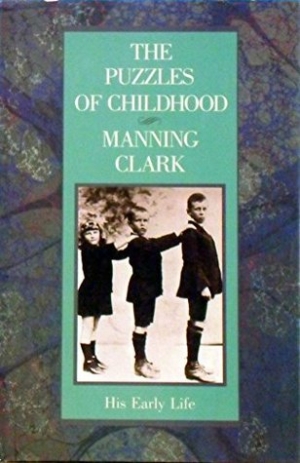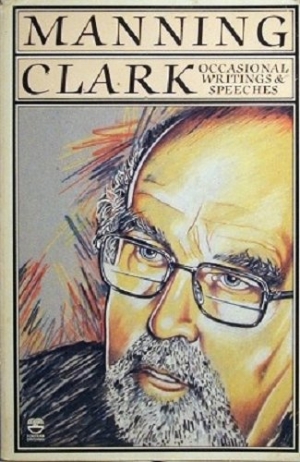Manning Clark
Dear Manning,
I’m writing you this letter for want of better ways of continuing the conversation we’ve been having for the past eight years, sustained by weekly letters while I was in Japan. We began to walk and talk in 1983 as you were preparing for heart surgery and I wasn’t coping with a broken heart. You wanted someone to walk with, and I needed company.
... (read more)Peter Craven reviews 'The Puzzles of Childhood' by Manning Clark
Manning Clark will be remembered as a historian long after the last jot and tittle of the facts he amassed have been disputed and every revisionism has had its day, proving for those with the needful faith that he made it all up, that he was a waffler, that the diorama he presented as the history of Australia was nothing but an allegory of the inside of his head, and that it was all vanity and a striving after wind.
... (read more)Soul-searching about our past is the new literary fashion. It is the period in which the breast-beaters, the moral Pharisees, are driven to tell us how, unlike their predecessors, they have political and moral virtue. The Aborigines, women and ordinary people have become the ‘goodies’, and all those who ignored them in their books or their teaching have become the ‘baddies’. The winds of change are blowing over the ancient continent.
... (read more)Stuart Macintyre reviews 'Occasional Writings and Speeches' by Manning Clark
In one of the pieces that make up this collection, Manning Clark recalls how he first encountered Barry Humphries in the late 1950s and recalls the shock of recognition that he was in the presence of a man of genius. Clark wants to defend that judgement against those of us who find today’s Edna Everidge tedious and offensive. He identifies the great gifts of the satirist, the timing, the ear for a phrase, the emotional extravagance, the ability to conceive and execute a range of outrageous characters. This technical virtuosity is important, Clark maintains, because it enables Humphries to hold up a mirror to Australian society and show us what we are. No matter that we are offended by the mounting vulgarity of Edna or the wilful misrepresentation of Whitlamism: Humphries is merely showing us ourselves in an age of ruins. His is the madness of a man possessed by a love-hate relationship with the people, a man impelled to confront us with our inner emptiness.
... (read more)


